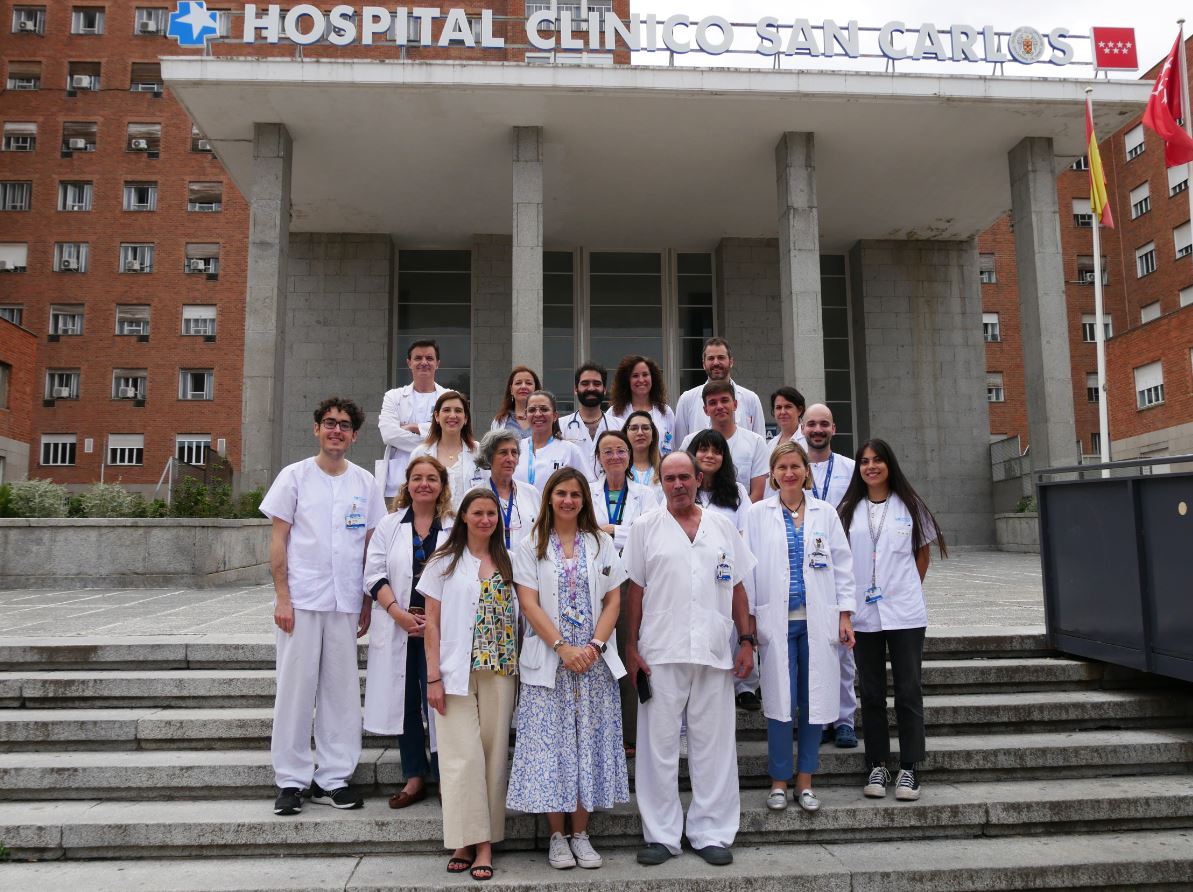
Tel. +34 913303000 (Ext. 484707)
San Carlos Clinical Hospital
C/ Profesor Martín Lagos s/n 28040 Madrid

Multidisciplinary training group (physicians, pharmacists, and biologists) focused on the study of infectious diseases from the interrelationship between microorganisms and human beings, with special attention to the epidemiology, pathogenesis, diagnosis, and therapeutic opportunities of those that present resistance to antimicrobials.
All members of the research team have been working in this field for years, including epidemiological monitoring of certain infection-producing strains, the evolution of their susceptibility to certain antibiotics, the molecular mechanisms involved in cases of resistance, and treatment options for new molecules. This group also has accredited experience in the handling of pathogenic micro-organisms and the usual techniques for their diagnosis and study. The group has publications to support this work and has had several projects funded by both public and private money. Several doctoral theses have been completed and are currently in progress.
The year 2020 has led us to develop multiple molecular microbiology assays and to develop new lines of research, which are described below. Much of the work being developed is carried out in collaboration with other research groups (Regional Public Health Centre, Complutense University of Madrid, National Microbiology Centre and other National Health System Hospitals).
Dr. Alberto Delgado-Iribarren García-Campero has a degree in Medicine and Surgery and a PhD in Pharmacy (UCM); Specialist in Microbiology and Parasitology (No. 1 in the 1984 FIR exam). Diploma in Clinical Research Methodology (C. Universitario de Salud Pública).
Currently Head of the Microbiology and Parasitology Department at the Hospital Clínico San Carlos in Madrid. Formerly Head of the Microbiology and Parasitology Service and President of the Infection Commission Antibiotic Policy and Prophylaxis of the Fundación Hospital Alcorcón. From 2008 to 2009 Coordinator of the Microbiological Ring of the New Hospitals of Madrid (S.Sebastián de los Reyes, Coslada, Arganda, Vallecas, Parla and Aranjuez).
Currently collaborating in 10 research projects. More than 100 publications related to Clinical Microbiology and Infectious Diseases. Participated in numerous clinical and research trials.